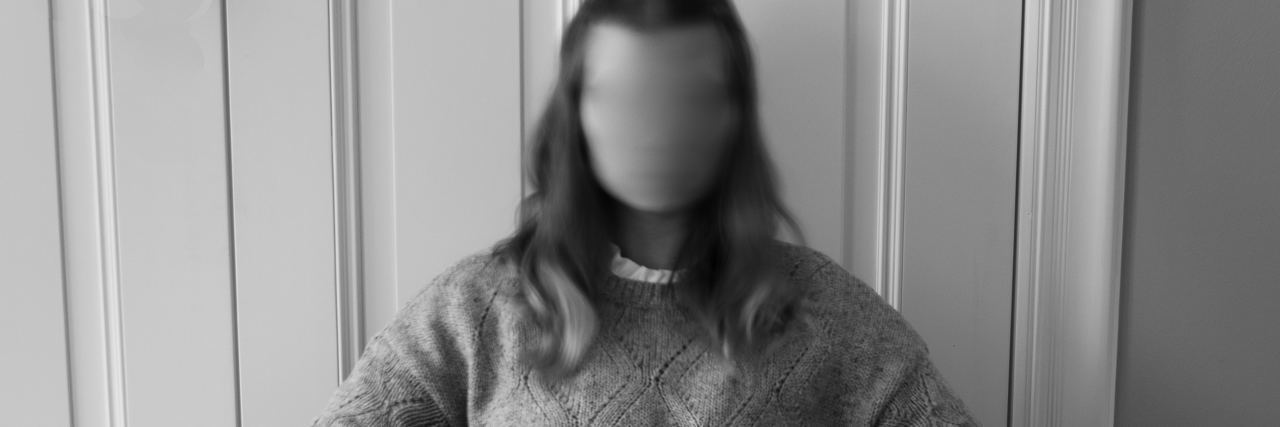When BPD Makes You An ‘Identity Thief’
Editor's Note
If you struggle with self-harm or experience suicidal thoughts, the following post could be potentially triggering. You can contact the Crisis Text Line by texting “START” to 741741. For a list of ways to cope with self-harm urges, visit this resource.
“Who am I?”
I’m constantly plagued by that seemingly simple question. I’ll wake up and spend what feels like hours standing in my closet, lost in the seemingly foreign clothing that surrounds me. I’ll stop mid-task at work because I suddenly can’t understand why I even deserve my job at all. Everything feels unstable; each day, I feel like a different person.
Unstable self-image is a symptom of borderline personality disorder (BPD) for many people, including me. But unlike other characteristics of our disorder like suicidal ideation, self-harm or unhealthy relationships, there’s not much help for this particular problem. Furthermore, many of us don’t even see it as a problem at all, but more just something we subconsciously wrestle with every step we take.
For a long time, I was completely unawar ofe how much the instability of my identity impacted every other part of my life. I knew I went through “phases” throughout my life, and I also had the painful awareness that my friendships often suddenly crumbled after seeming so flawless for months. I knew people were fascinating; I knew I processed information quickly and carefully studied those around me to pick up anything about them.
I didn’t realize, though, that my unstable sense of self was actually causing me to become an identity thief instead of pushing me towards self-discovery.
It started with a heated fight with a friend of mine. She accused me of trying to become a “cheap imitation” of her. At first, I denied the accusation and couldn’t believe what I was hearing, but I listened and tried to understand her perspective. I took this information to my therapist, who helped me process not only this instance but the paper trail of behavior patterns that went all the way back to my childhood.
Sometimes the infractions were as minuscule as claiming to like a band or cartoon to “win favor” with others. Other times, it was as severe as dressing and speaking like the identity victim while adopting their mannerisms and digging my way as deeply into them as possible.
I’ve been working to process why I try to become other people instead of existing as my own unique person, and it’s been a challenge to understand. For starters, I slowly take on traits or interests of those I’m around subconsciously — without awareness or understanding of what I’m doing. That may seem unbelievable to many, but when you spend every day walking through a haze of unstable self-image, it’s actually quite easy to become fluid and transform.
Furthermore, when you live in a world of constant self-hatred and isolation, the idea of assuming someone else’s identity becomes highly attractive. You see these people having beautiful friendships, receiving praise, pursuing their dreams and attaining a status of success… and it’s everything you’ve ever wanted. You fear you can’t reach that picture-perfect life by being yourself, so you change. You try to fit in; you assimilate.
What does this behavior accomplish, though?
Honestly, nothing productive, as I’ve recently discovered.
When we abandon ourselves in the pursuit of happiness, we actually end up digging ourselves deeper into the depths of distress and despair. We perpetuate resentment and bitterness from those we’ve tried to become — those who we most love and admire. We add to the cognitive dissonance and identity crisis that’s already a daily part of our lives. We lose ourselves more while also driving everyone we’ve ever loved away, and eventually self-destruct.
Luckily for me, my story seems to have a happy ending. My FP and I have spent recent weeks talking through everything, and just as she always does, she’s promised to help me find my own voice once again. My therapist and I are working on radical acceptance (again) and establishing daily mindfulness practices to help me learn how to return to by body and become comfortable in my skin. And, finally, I’ve started attending a 12-step group that focuses on healing from childhood trauma and working towards self-acceptance. Though I’ve spent nearly all my life as an identity thief, it’s time to finally challenge myself to become the person I really need to be: my true self.

